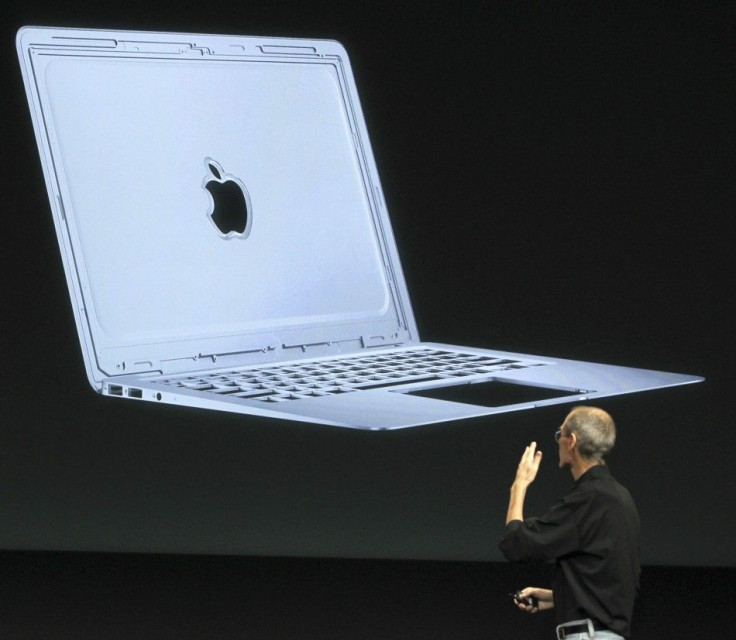RIP Disk Drive? Apple, Intel to Remove Unit from Future Laptops

Optical drives, those whirring slots for playing CDs, DVDs and other media, will reportedly be cut from the next round of Apple MacBooks and Intel Ultrabooks, signifying what could be the end of laptop disk drives.
As the popularity of physical CDs and DVDs wanes, optical drives have largely become an afterthought in modern laptop design, included only to appease the focus groups who agree that disk drives are part of the laptop status quo. PC makers like Hewlett-Packard, Dell and Toshiba have reluctantly continued to include optical drives in the designs of their computers, but a few companies have decided to ditch the drives completely.
Apple's 15-inch MacBook Air, slated for 2012, will reportedly not include an optical drive. The MacBook Air has never had an optical drive since it was introduced in early 2008, but Apple is likely to forgo optical drives across all of its future MacBook laptops as well, since the optical drives have long forced Apple to compromise its laptop designs to include the bulky drives.
It's no surprise that Apple would discontinue optical drives within its laptops, since design has always been the focal point of the company, and Steve Jobs was never a fan of focus groups to begin with. Jobs believed that consumers didn't know what they wanted until you gave it to them, so Apple hopes that with its plethora of digital media offerings via the iTunes, users won't miss the ability to play DVDs on their laptops.
Intel, the makers of the Ultrabook chip for laptops, have adopted Apple's consumer philosophy in its decision to dump the drives.
We are not waiting for this to happen, said Erik Reid, Intel's manager of the Ultrabook platform. We're going to create the future, and that's fundamentally what this transition is all about.
Intel plans to unveil as many as 50 new Ultrabooks at the 2012 International CES in Las Vegas, and all of the laptops will come without the optical drives. Intel says the Ultrabooks are aimed to be aesthetically pleasing, and the design could not accommodate the substantial size of the disk drives.
Users want something that's cool, Reid said. It must be better engineered because its' thin. It's harder to make a thin device than a thick device. It's more forward-looking.
Users afraid of losing the ability to play CDs and DVDs from their laptops don't need to worry just yet. Fading out the optical drive may take several years, and there are plenty of other inexpensive media players that can play DVDs and Blu-ray movies. Yet, as more people transition into buying digital music and movies that can be stored in the cloud, optical drives will slowly be phased out. In time, we might not even realize they're gone.
© Copyright IBTimes 2024. All rights reserved.






















